Fears vary by person, but alcoholics going into treatment commonly report these six fears: sobriety, treatment stigma, the unknown, failure, success, and facing challenges.
Fear Defined
Fear is a natural human emotion that serves as a defense mechanism to protect us from harm or perceived danger. For many individuals struggling with addiction, the thought of seeking treatment can trigger feelings of fear and anxiety. These fears can be rooted in experiences, past traumas, or negative beliefs about themselves. Fear can also be an obstacle that prevents individuals from seeking the help they need to overcome their addiction.
When it comes to addiction, fear can take many forms, from fear of sobriety to fear of the “treatment stigma” to fear of the unknown. However, it’s essential to understand that fear is a normal part of the healing process and that overcoming fear is essential to recovery.
Fear and Addiction-What’s the Connection?
Addiction is a complex disease that often involves many emotional, physical, and psychological factors. For many individuals struggling with addiction, fear and anxiety can significantly affect their ability to seek and maintain treatment. The fear of sobriety, the fear of the “treatment stigma,” and the fear of the unknown can all be significant barriers to seeking help.
The relationship between fear and addiction is complex, but it’s important to recognize that addiction is often a coping mechanism for individuals dealing with difficult emotions, such as fear. By seeking treatment, individuals can begin to address and overcome their fears, ultimately leading to a more fulfilling and healthier life in recovery.
Fear is a common obstacle for individuals seeking addiction treatment, but it’s essential to understand that help is available. From therapy and support groups to addiction treatment centers, resources are available to help individuals overcome their fears and start their journey toward recovery.
What Fears do Alcoholics Have About Treatment?
Fears about treatment for alcohol addiction can often prevent someone from seeking the help they need. Whether it’s fear of sobriety, the “treatment stigma,” or the unknown, these fears can be overwhelming and leave individuals feeling helpless and hopeless. Let’s take a closer look at the alcoholism treatment fears that alcoholics have and what they can do to overcome them.
Fear of Sobriety
One of the biggest fears that alcoholics have about treatment is the thought of living life without alcohol. For many, alcohol has become a crutch and a coping mechanism, and the idea of not being able to use it as a means of escape can be frightening. This fear can be particularly difficult to overcome because it touches on the deep-seated reasons why someone may have turned to alcohol in the first place.
Fear of the “Treatment Stigma”
Another fear that alcoholics may have about treatment is the perceived stigma associated with seeking help for their addiction. They may be afraid of judgment in alcoholism treatment by others or of being labeled as “alcoholics.” This fear can be particularly difficult to overcome because it touches on the individual’s feelings of shame and guilt about their addiction.
Fear of the Unknown
The unknown can be frightening, and this fear is often associated with the fear of treatment. Alcoholics may fear what they will face in treatment, what kind of people they will meet, and what their lives will look like after they complete treatment. It might even be as simple as being unsure how to cover the cost of alcoholism treatment. This fear can be particularly difficult to overcome because it is rooted in the uncertainty and unpredictability of the future.
Fear of Failure
Another fear that alcoholics may have about treatment is the fear of treatment failure or failure in their recovery. They may be afraid of not being able to overcome their addiction successfully or of relapsing after they complete treatment. This fear can be particularly difficult to overcome because it touches on the individual’s feelings of self-doubt and low self-esteem.
Fear of Success
While the fear of failure can be a major barrier to seeking treatment, the fear of success can also be a barrier. Alcoholics may fear what their lives will look like if they successfully overcome their addiction. They may be afraid of the changes they will have to make, the responsibilities they will have to take on, and the challenges they will face.
Fear of Facing Challenges
Finally, alcoholics may be afraid of facing the inherent challenges of overcoming addiction. They may fear the physical and emotional toll that withdrawal and recovery will take on their bodies and minds. They may also be afraid of the work they will do to overcome their addiction and the changes they will have to make in their lives.
Taking the First Step
Admitting alcoholism is the first and most difficult step toward recovery from alcoholism. It takes courage and self-awareness to recognize and admit that you have a problem, but this is an essential step in seeking treatment. Treatment can help with everything from detox and withdrawal to trigger management and relapse prevention.
Admitting You Have an Addiction
Admitting you have an addiction can be difficult and scary, but it is the first step toward recovery. It is important to remember that alcoholism is a disease, and seeking treatment is the best way to overcome it. By admitting your addiction, you are taking control of your life and making the decision to seek help.
Finding the Right Treatment Center
Treatment centers offer a wide range of services that can help you overcome your fears and get on the road to recovery. Whether you’re looking for inpatient rehab, outpatient treatment, or a combination of both, there’s a treatment center that’s right for you. Treatment centers may also offer support groups, such as Alcoholics Anonymous or Narcotics Anonymous, to provide additional emotional and mental support. If you’re struggling with alcoholism, reach out to a treatment center today to learn more about how they can help you. With their help, you can break free from the cycle of addiction and start living a healthier, more fulfilling life.


